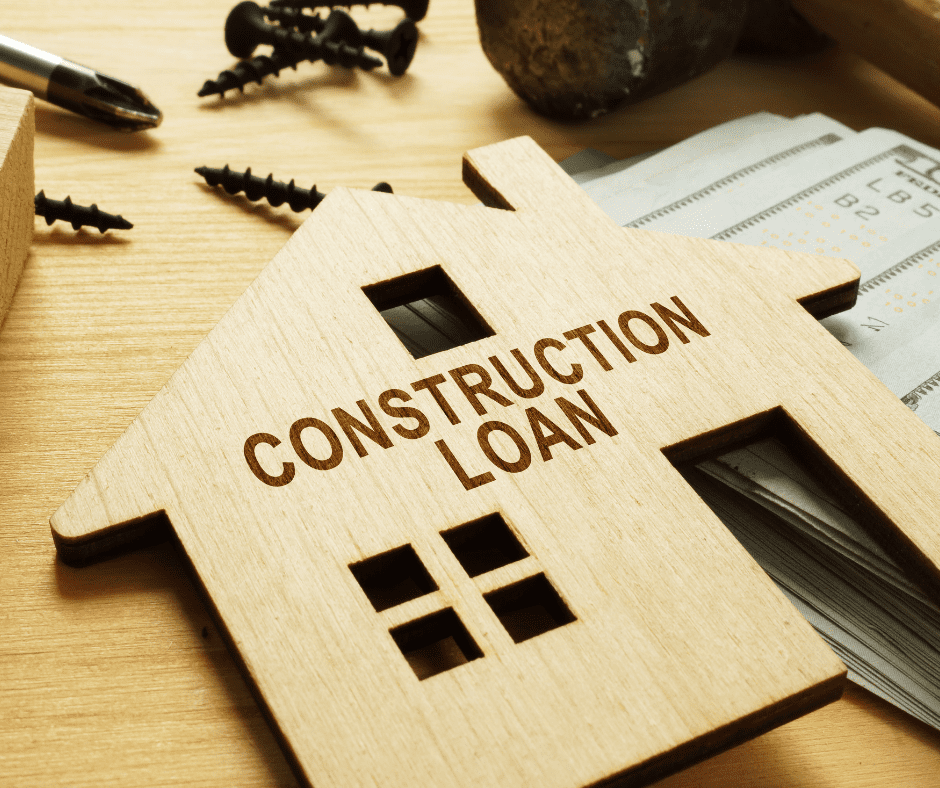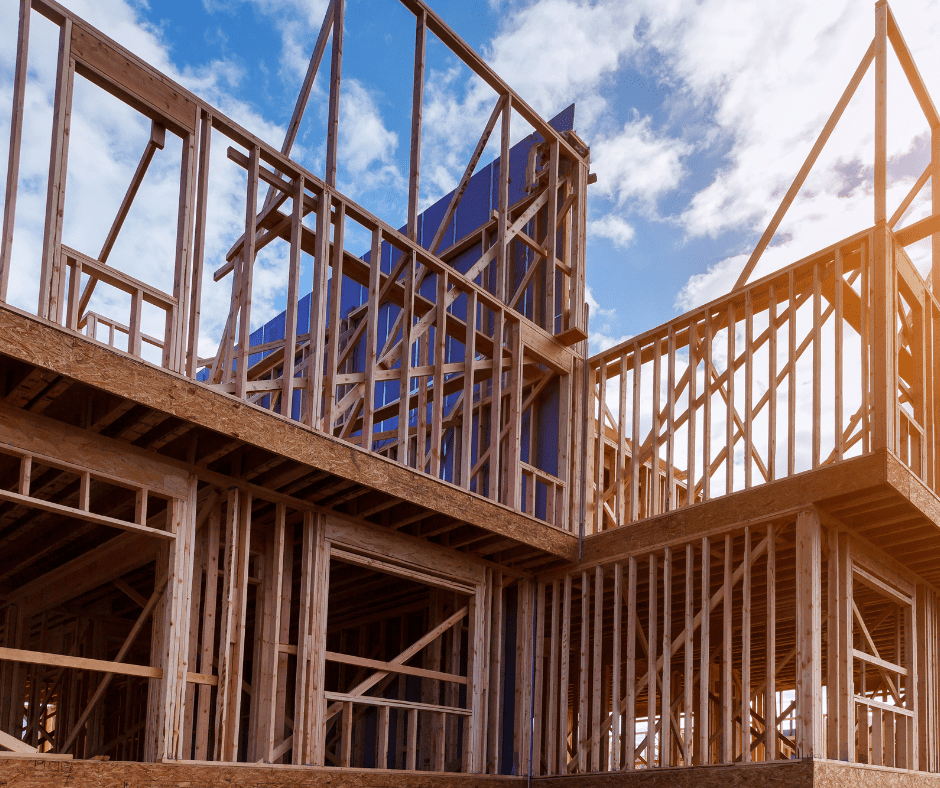Building your dream home is the great Australian dream—complete with a house and backyard. As the housing market evolves, construction home loans are becoming increasingly popular for Australians wanting to build from the ground up or undertake significant renovations. Unlike traditional mortgages, construction loans cater specifically to funding the building process in stages. If you’re looking to turn your vision into reality, Orchard Mortgage Brokers on the Sunshine Coast are experts in finding the right loan tailored to your needs.
In this blog, we’ll explore:
- What a construction home loan is
- Key features of construction loans
- How to apply for a construction home loan
- The benefits of using a mortgage broker
- Important considerations before taking a construction loan
- When to refinance post-construction
What is a Construction Home Loan?
A construction home loan is designed to finance the building of a new home or major renovations, with funds being disbursed in stages as the project progresses. Unlike a traditional mortgage where you receive a lump sum to purchase a home, construction loans release payments at various stages of the build, helping to ensure the project moves forward smoothly.
Working with mortgage brokers who have many years helping clients secure construction loans—like the team at Orchard Mortgage Brokers—is essential to navigating this type of financing.

Key Features of Construction Loans
Here are the key features of construction loans:
Progress Payments
Construction loans release funds progressively at specific milestones—such as after the slab is laid, framing is completed, or the home reaches lock-up stage. This ensures you only borrow what’s needed as the project advances.
Interest-Only Payments
During construction, you typically make interest-only payments on the amount that has been drawn down, rather than the full loan amount. This helps reduce costs while your home is still being built.
Fixed vs. Variable Interest Rates
You can choose between a fixed or variable interest rate for your loan. Fixed rates offer stability, while variable rates will fluctuate with the market, affecting your repayments. Orchard Mortgage Brokers can help you determine the right option based on your financial goals and preferences.
Loan-to-Value Ratio (LVR)
The Loan-to-Value Ratio (LVR) refers to the amount you borrow relative to the value of the property. For construction loans, lenders usually require a deposit ranging from 10-20%, depending on the LVR.
How to Apply for a Construction Home Loan
Every construction is different and the loans can be structured accordingly, but these are the most common steps in a construction loan:
Step 1. Plan the Project: Work with your builder to create a building contract, estimated costs and stages of construction.
Step 2. Know the Finance Requirements: Discuss your requirements and circumstances with Orchard Mortgage Brokers.
Step 3. Construction Loan Planning: Orchard Mortgage Brokers search for the right construction loan solution to suit your project & finances.
Step 4. Progress Payments: After lending approval, funds will be made available at key milestones throughout the construction. Commonly these key stages are: preparation, slab (or floor), framing, lock up, fit out and lastly completion.
Step 5. Completion: Your selected lender will generally inspect and value the property. The loan will then switch to a standard longer-term loan without the requirement for finance in stages.
Start your process today by talking to Orchard Mortgage Brokers and understanding your options.

What You Need to Know About Lenders Mortgage Insurance (LMI)
Lenders Mortgage Insurance (LMI) is typically applicable if your deposit is below 20%. LMI protects the lender in case of default, but the cost is typically passed on to the borrower. To avoid or reduce LMI, aim for a higher deposit or work with Orchard Mortgage Brokers to explore strategies for managing LVR.
Benefits of Using a Mortgage Broker for a Construction Loan
Personalised Loan Options
A broker like Michael from Orchard Mortgage Brokers compares multiple lenders to find the most suitable construction loan, tailored to your specific financial situation and goals.
Expert Guidance
Construction loans can be complex. With a broker, you’ll have expert guidance through the entire process, ensuring you avoid common pitfalls and secure the right loan for your needs.
Negotiating Competitive Rates
Mortgage brokers are skilled in negotiating better interest rates and more favourable loan terms, potentially saving you money over the life of your loan.
Important Considerations Before Taking a Construction Loan
Choosing the Right Builder
It’s crucial to work with a reputable builder who can provide a detailed contract and has a track record of delivering on time and within budget.
Building Timeline and Delays
Delays in construction can impact progress payments and lead to increased interest costs. It’s wise to factor in potential delays and have a financial buffer ready.
Budget Planning
Unforeseen costs are common during construction. Make sure your budget includes contingencies for any unexpected expenses to avoid financial strain during the build.
Common Signs You Should Refinance Your Home Loan Post-Construction
Once your home is built, refinancing your construction loan can help you secure a better interest rate or switch from an interest-only to a principal-and-interest repayment plan. Here are some common signs that it might be time to consider refinancing:
- Interest Rates Have Dropped: If market rates are lower than when you first secured your construction loan, refinancing can help reduce your monthly payments.
- Your Financial Situation Has Improved: If your income or credit score has increased, you may be eligible for better loan terms, including a lower interest rate.
- You Want to Switch to a Principal-and-Interest Loan: Many borrowers initially opt for interest-only payments during construction but may want to switch to principal-and-interest repayments post-construction.
- Your Loan’s Fixed Term is Ending: If your fixed-rate term is coming to an end, refinancing can help lock in a new, more favourable rate.
- You Want to Access Equity: If your property has increased in value during construction, refinancing can allow you to access the equity for other investments or renovations.
Orchard Mortgage Brokers can assist you in assessing when it’s the right time to refinance for more favourable terms.

FAQ Section:
What’s the difference between a construction loan and a traditional mortgage?
A construction loan is disbursed in stages as the build progresses, whereas a traditional mortgage provides a lump sum for buying an existing property.
How are progress payments structured in a construction loan?
Funds are released at specific milestones of construction, such as slab completion, framing, and lock-up stage.
Do I need a deposit for a construction loan?
Yes, most lenders require a deposit, usually between 10-20%, depending on the LVR.
What happens if my construction project gets delayed?
Delays can affect loan payments and interest costs. It’s essential to have a financial buffer and communicate with your lender or mortgage broker to manage any issues.
Can I refinance my construction loan after the build is complete?
Yes, many borrowers refinance to secure better rates or switch to a principal-and-interest loan once construction is finished.
Conclusion
Securing the right construction home loan can make building your dream home as smooth as possible. With the expert guidance of Orchard Mortgage Brokers, you’ll benefit from personalised advice, competitive rates, and support throughout your construction home loan application process.

Contact Us Today
Ready to turn your dream home into a reality? Contact Orchard Mortgage Brokers today to get expert advice on construction home loans and start building your future! Reach out now and let us guide you through the process.
Licensing statements: Orchard Mortgage Brokers (Qld) Pty Ltd ACN 671 112 137 Trading As Orchard Mortgage Brokers is an authorised Credit Representative 556459 under Australian Credit Licence 389328 General disclaimer: This page provides general information only and has been prepared without taking into account your objectives, financial situation or needs. We recommend that you consider whether it is appropriate for your circumstances and your full financial situation will need to be reviewed prior to acceptance of any offer or product. Subject to lenders terms and conditions, fees and charges and eligibility criteria apply
